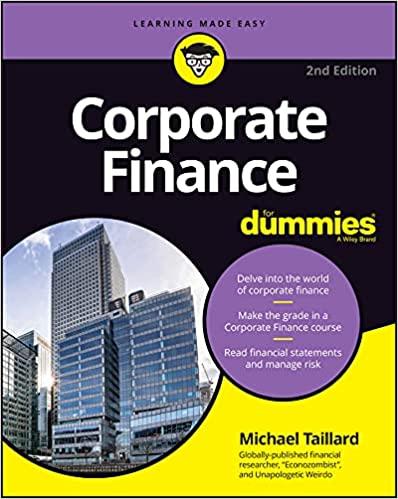Question
1a. which of the following statements is/are true about a risk averse investor? a. a risk averse investor dislikes risk. b. a risk averse investor
1a. which of the following statements is/are true about a risk averse investor?
a. a risk averse investor dislikes risk.
b. a risk averse investor requires compensation in the form of a positive risk premium for beaing risk.
c. a risk averse investor will not undertake high risk investments.
d. A and B
e. A and C
1b. there are only two investment options available. option 1 has an expected return of 10% and a standard deviation of 15%. Option 2 has an expected return of 10% and a standard deviation of 40%. which option would be chosen by a risk loving investor?
a. option 1
b. option 2
c. a risk loving investor would be indifferent between these options.
d. not enough information is provided.
1c. which of the following provides the best example of a firm specific risk event?
a. global warming
b. mad cow disease in montana hurts local ranchers and buyers of beef
c. the federal reserve increases interest rates 50 basis points
d. a senior executive at a firm embezzles $10 million and escapes to south america.
1d. you invest $1,000 in a complete portfolio. the complete portforlio is composed of a risky asset with an expected rate of return of 20% and a standard deviation of 15% and a treasury bill with a rate of return of 6%. the sharpe ratio of you complate portfolio is approximately____.
a. 1.05
b. .93
c. .5
d. .34
Step by Step Solution
There are 3 Steps involved in it
Step: 1

Get Instant Access to Expert-Tailored Solutions
See step-by-step solutions with expert insights and AI powered tools for academic success
Step: 2

Step: 3

Ace Your Homework with AI
Get the answers you need in no time with our AI-driven, step-by-step assistance
Get Started


